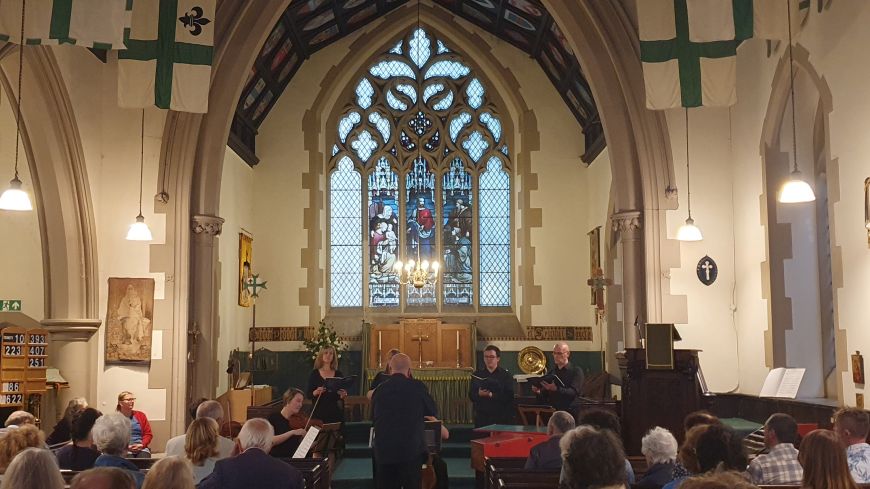
Both born in 1685, not too far apart, it is remarkable that Bach and Handel never met, following divergent musical paths.
That they nonetheless converged this evening was a joy for the audience at St Vincent’s. We began with one of Bach’s early church cantatas – unusual for making no use of Lutheran chorale preludes – and partly based on Psalm 25. The whole was brilliantly performed – while there was also something notable about each section too, as was especially the case with Philippa Wood’s singing of the first (brief) aria. The balance of the voices in the second Chorus movement was incredibly well handled, while the rhythmic crescendos in the concluding chaconne, and sense of liberated musicality, reflected the movement from sorrow to joy.
It was lovely to hear one of Bach’s less well-known, but equally exquisite, works to follow. The Pastorella in F major may have been intended for a more domestic setting, and only the opening Pastorale requires pedals.
‘Let God Arise’ was one of a set of six anthems that Handel composed to be performed in the chapel at Cannons (home of the Duke of Chandos), to which the composer was music director. We saw some classical Handel in this work, though here within his more intimate church repertoire. Unlike Bach, his compositions are known for being operatic – a man of the theatre – and he is well-known for his settings of some great Old Testament texts.
It still seems a bit strange as to why Handel set the ‘O sing unto the Lord’ in this work to a minor key – though it was performed with poise and presence. At the end, the penultimate Chorus item was sung with all the energy the corresponding scene envisaged – leading into the climactic movement, in which you couldn’t help but see a prefiguring of Handel’s later ‘Messiah’.
It is wonderful to see the musical programme at St Vincent’s ever expanding and increasing in both its complexity and success. The performance finished at 8.35pm.
God’s Craftsmen, Thursday 17th August, St Vincent’s Chapel, 7.30pm

